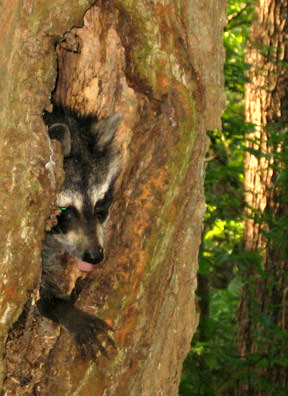
|
Kathy
Cummings * Keller, Virginia * 757-442-7665 or 757-709-1840 * * Wildlife
Rehab Permit Number 028007
|
 Does that wild child
really need help? Nuisance Wildlife How You Can Help Update Archives: 2008 archives 2007 archives A BIG Thank you Main Page |
|
Guide for
baby wildlife and if they need help * Baby crying alarmed or sounds weak * The baby stays in the same place alone for over an hour(sometimes this is normal and would be longer for baby fawns) * The baby is injured or covered in insects of some kind * The eyes are still closed and the baby is out of its den or nest * The baby is cold or looks very thin * The baby is in a dangerous place (in water, near a road,etc) * The mother is dead or moved or relocated This is not a fool proof list of whether a baby needs help. If you can, please call first if in doubt before taking home a baby. AND, yes, the mother will still take a baby back in most cases after it has been touched by humans. Fawns are born with very little odor as protection from predators. They also have an instinct to freeze when presented with danger. The doe spends as little time as possible with her babies. She may nurse only 5-10 minutes at a time the first few weeks. Thus the babies are hopefully safe from other animals and stay close to where she leaves them, possibly wandering only a few feet before laying down after she leaves. When she returns, she makes a low gutteral sound to call the babies close to where she last left them. They respond with a gentle mew or an alarm cry if frightened. Again, human scent does not deter a mother from returning to her young, but it may make them more susceptable to predator animals, such as dogs. |